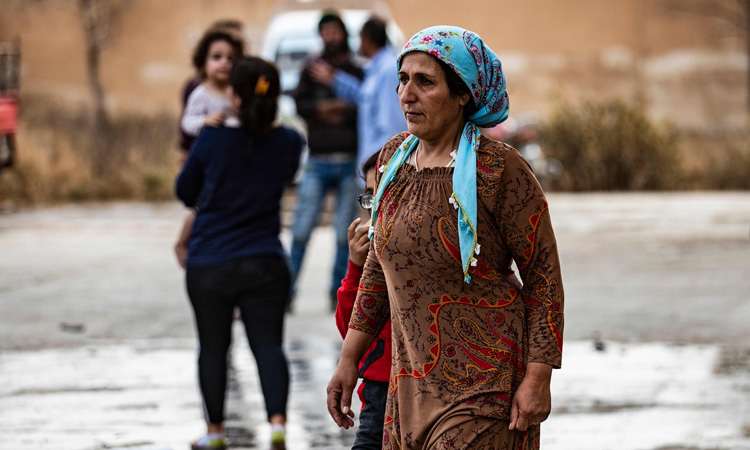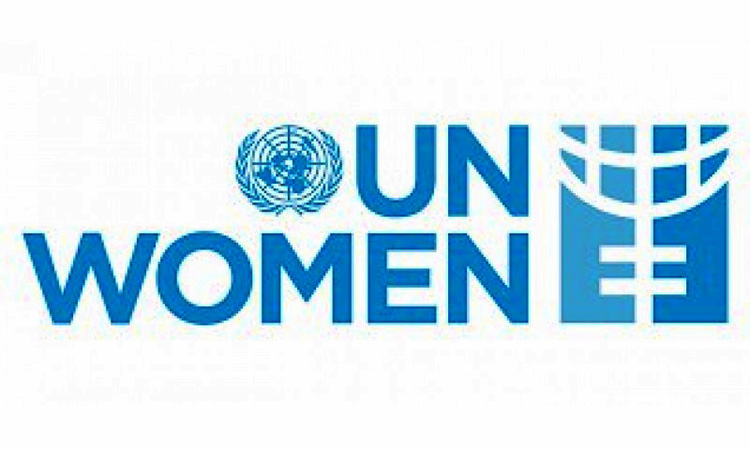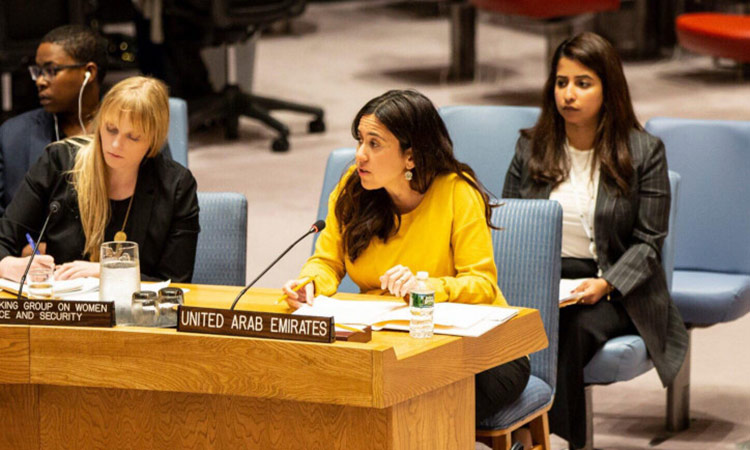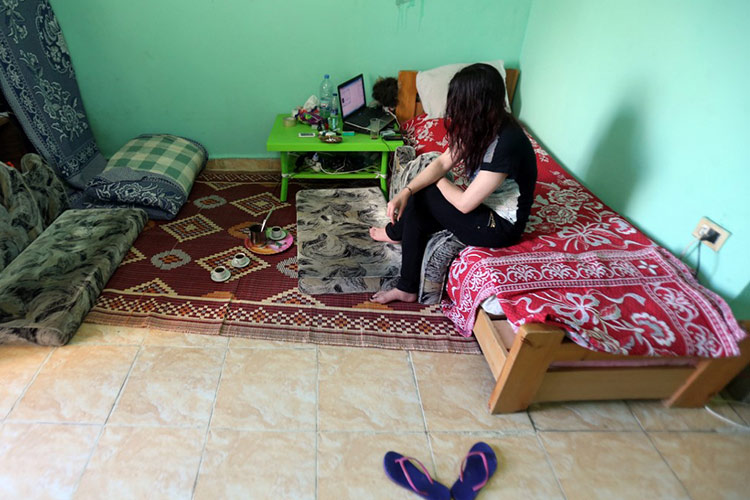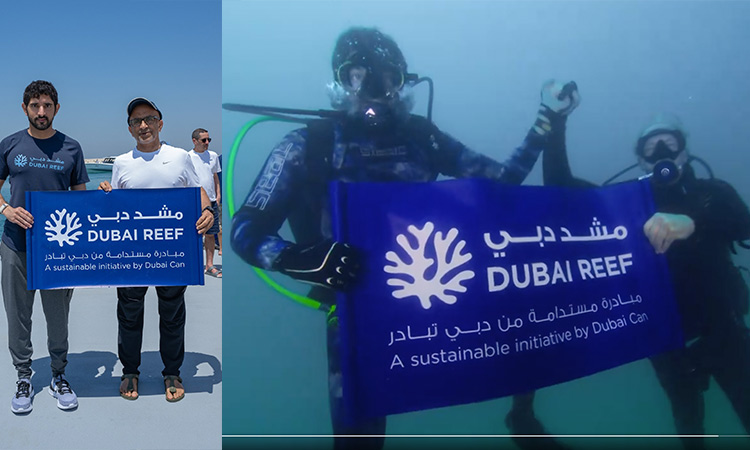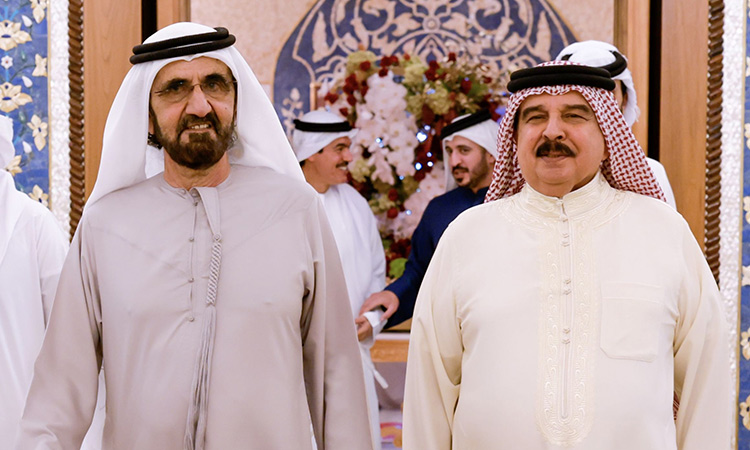‘More to be done against gender-based violence’
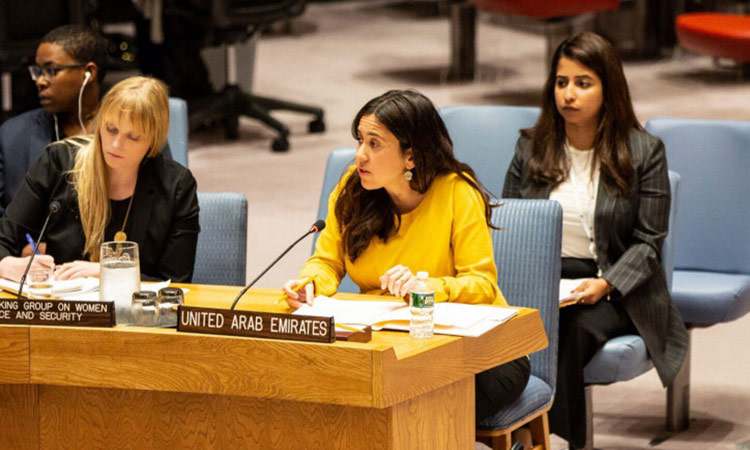
Lana Nusseibeh speaks at the United Nations. File
Mariecar Jara-Puyod, Senior Reporter
Being sensitive to and acting towards the fulfilment of the rights of individuals, particularly of women and girls, will unclasp and unburden society of all existing and persistent socio-economic and political issues and challenges.
“If people were not treated as strangers in their own countries and given support systems they need for their right to live, get educated, have informed choices and decisions, and get decent work, then there would be no conflicts and humanitarian crises,” United Nations Population Fund (UNFPA)-Arab States regional director Dr Luay Shabaneh told Gulf Today.
He was interviewed on the sidelines of the “High-Level Event Commemorating ICPD@25 and UNFPA@50” held on Thursday in Dubai, ahead of the 50th founding anniversary of the UNFPA over the weekend which has been campaigning, since 1969, “zero maternal death, zero childbirth mortality, and zero gender-biased violence” because “every pregnancy must be wanted, every childbirth is safe and every young person’s potential is fulfilled.”
The event also memorialised the silver anniversary of the 1994 “International Conference on Population and Development” in Cairo, Egypt, wherein 179 UN member-states pledged and adopted a Programme of Action to make girls’ and women’s reproductive health rights basic in all national, regional and global developmental pursuits.
Shabaneh unveiled the Arab World edition of the UNFPA’s “The State of the World Population Report 2019” sub-titled “Unfinished Business—The Pursuit of Rights and Choices for All.”
The report was the foundation of the “ICPD@25/UNFPA@50 and Sustainable Development Goals: The Unfinished Business, Challenges, Opportunities, Way Forward” panel discussion.
In his speech, special guest Swedish Ambassador to the UAE, Kuwait and Bahrain Henrik Landerholm reiterated the strong commitment of Stockholm in giving all forms of assistance, such as its four-year $300 million fund, in order for UNFPA to achieve all its goals. He said a pillar of the Nordic government’s foreign policy is the promotion of “women’s rights as human rights (fundamental) to sustainable development, as women and girls must be given equal opportunities and (treated as equal to both men and boys for the furtherance of sustainable development).”
A source said that among three European governments, Sweden is UNFPA’s top donor.
From the panel discussion, Al Azhar University-International Islamic Centre for Population Studies and Research (ICPSR) director/Obstetrics and Gynaecology professor Dr Gamal Surrour pointed out that through the ICPSR open channel of communications, deliberations and collaborations with leading Islamic leaders alongside leaders of the Church of Alexandria and the Anglican Church, it has been agreed and made clear that Allah or God, through the Holy Quran and the Holy Bible respectively, commands for the protection, care and respect for women and children.
“I am from the medical side but with the (religious people) ICPR has been dealing with, we all believe that there must be no misinterpretation of the Holy Quran and the Holy Bible.”
American University in Dubai-International and Middle Eastern Studies Department chairman/International Studies professor Dr Elham Seyedsayamdost and United Nations Global Compact Regional Network Council co-chairman Mohamed El Fouly discussed how corporate social responsibility, volunteerism, and plain mindfulness have somehow paved the way for care and concern towards women and girls across the world.
The UNFPA 2019 Report encapsulates the achievements of the organisation in attaining its goals globally, regionally and on a per country basis in the last 50 years. It also carries the humanitarian crises the world, every region and every country have, namely exponential rates of gender-based intolerance and violence against women and girls: child marriages, early pregnancies, childbirth mortality, illiteracy, unemployment, and marriage and family breakdowns as a consequence of intertwining social, economic, political, cultural and religious factors.
